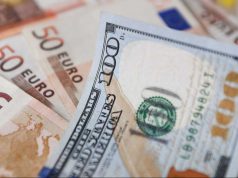In December 2019, the world dealt with an uninvited guest which seemed to have come from Wuhan, Hubei province in China, named Coronavirus (Covid-19). The deadly pandemic has had a major impact on all aspects of industries, including the automotive sector with major manufacturers shutting down due to the strict directives issued by health ministries around the world although some industries have managed to run with minimal staff at production units.
However, most of the manufacturing units around the world have been shut down, footfall in showrooms have fallen sharply and automobile sales have significantly declined. The global economic trade impact of Covid-19 on the automotive industry is estimated to be around $ 5.7 billion with European Union which is the worst-hit region at US$2.5 billion decline due to disruption in automotive supply chain amid reduction in supplies from China, reported Meticulous Research on May 2020.
As an aftermath of the pandemic, major automotive events across the world such as the 2020 Geneva Motor Show, Qatar Grand Prix, New York International Auto Show, and Australian Grand Prix, have been cancelled or postponed throughout this period. Some major automotive players such as Ford, Volkswagen Group factories in Europe, Ducati, Tesla, BMW and Rolls-Royce had suspended their production due to the virus.
It is estimated that the pandemic will brutally hit the global automotive industry with a 12%-15% drop in the market at the end of 2020. At the beginning of the first wave of the virus, China has stopped its supplies to the global market since the epicenter Hubei which supplies over 300 automotive parts worldwide has stopped its production. Despite its resumed production now, there still has a lack of orders from manufacturers in other regions and logistic issues. As the epicenter shifts from China to Europe & the U.S, the impact on the automotive sector will more likely to prolong.
In Myanmar, the incident also threatens the automotive market which is significant in the new vehicle market with a sharp drop in demand. Although the market records a monthly sale of 20 units till the month before Covid-19, consumers delayed their purchases in the months following the entry of Covid-19 into the country reaching a 50% of normal purchases in July.
Today, some car dealers are reinvigorating their inventory movement with price adjustments in response to the falling demand by selling 10% to 20% below the market price while some remained selling at the market prices. In a bid to restore the market, the dealers are planning to do more selling on installment basis, giving price promotion and creating value added services etc,.
According to auto marketing managers’ expectations, the recovery of the market relative to that of the country’s economy, may likely take three to six months in the best case or more than a year in the worst case.
There will also need a fair amount of support from the government to boost the automobile market to the next level. The government introduced the relaxation of the income tax from 15% to 3% in the current fiscal year 2019-2020. When revising the tax policies at the end of the current fiscal year, the government should consider an income tax rate which would not be higher than the previous one of 15%.
Besides, the importation of vehicles under Yangon licences was halted during the regime of the NLD government, which should be reopened. Car importations by government employees through individual licenses under tax exemption should be reconsidered in an attempt to improve the automobile industry. Right-handed drive car imports should be strictly taken into action.










